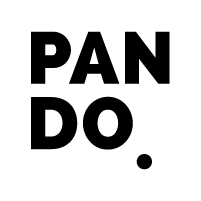workshops, sprint-programs & innovation days
PANDO. CONSULTING
PANDO. enables medium and large companies to benefit from the approaches and success factors of fast scaling startups. In our corporate section we have packed all our know-how into exciting workshop and idea sprint formats, which we make available exclusively to selected companies. The fields of application can be manifold, from the implementation of new concepts to the establishment of new innovative business units within the company. Let's get in touch and discuss how your company can benefit by PANDO. for corporates!

Profit from
Startups
Startups
How do small teams with only one product manage to become a billion-dollar company in just a few years? Get to know the decisive factors and take advantage of them for your team and company.

Turning Ideas
into Reality
into Reality
You want to implement an idea or a concept in your company and need a suitable agile framework? Our workshop and sprint formats have exactly this one goal. We provide you with the right tools to achieve success quickly.

New Work and
Cultural Change
Cultural Change
Your company is confronted with the chances and challenges of New Work? Find out how other companies deal with this transformation process, how you attract the right employees and how your employees become entrepreneurs themselves.
Workshops
Sprint Week
Innovation Day
We offer four different workshops as standard, ranging from developing ideas to formulating the overall strategy. All first workshops start with an introduction to PANDO, the team, our vision and the lean startup methodology as the basis of our approach. The desired workshops can be selected either individually or as a package. The price varies depending on the time and thematic scope. Individual price agreements or combination offers will be made by separate agreement.
Overview of the offered workshop formats:
1. Idea workshop: "Develop new ideas based on megatrends and how your own business model can be disrupted."
After the workshop, the participants will be able to:
2. Customer focus: "Get to know your customer better and achieve a continuous further development of the business model."
After the workshop, the participants will be able to:
3. Startup Culture: "How to make decisions much faster and become more attractive for the individual employee."
After the workshop, the participants will be able to:
4. Innovation programs: "How innovation can be encouraged, developed and purposefully implemented in enterprises."
After the workshop, the participants will be able to:
Overview of the offered workshop formats:
- Idea workshop: "Develop new ideas based on megatrends and how your own business model can be disrupted."
- Customer focus: "Get to know your customer better and achieve continuous development of the business model."
- Startup culture: "How to make decisions much faster and become more attractive for the individual employee."
- Innovation programs: "How innovation can be encouraged, developed and purposefully implemented in companies."
1. Idea workshop: "Develop new ideas based on megatrends and how your own business model can be disrupted."
- Understanding exponential market forces.
- Business Monster: "Destruction of your own business"
- Design-Thinking-Method: "Creation of an own, detached from the company startup"
- Discover and analyze other megatrends within the industry
- Identify new technologies and competitors within the industry.
After the workshop, the participants will be able to:
- create new ideas based on design thinking methods.
- transfer industry know-how into new ideas.
- question one's own business model on the basis of megatrends and (if necessary) already implement new approaches.
- assess and evaluate new competitors.
- identify and challenge substitutional threats outside your industry.
2. Customer focus: "Get to know your customer better and achieve a continuous further development of the business model."
- Value proposition: "What is my actual added value and how do I differentiate myself from my competitors?"
- Buyer Persona: "Who is my ideal customer and what are his characteristics?"
- Drawing up hypotheses of the client's needs.
- A/B-Testing: Ways of online and offline survey of customer needs.
- Design of the MVP (minimally viable product).
- Setting up key performance indicators to measure project progress and define milestones.
After the workshop, the participants will be able to:
- a more target-oriented addressing of the end customer.
- understand and apply agile project management.
- develop your own products with the help of market feedback.
- understand the importance of making faults.
- understand when the concept needs to be adapted and when individual hypotheses are validated.
3. Startup Culture: "How to make decisions much faster and become more attractive for the individual employee."
- Start with Why: "Mission, vision and values of the organization."
- Vision culture: "Internal communication."
- Lean Leadership: "The modern kind of leadership culture."
- Employee retention: "How to create an attractive working environment in the long term."
- Successful teams: "What defines a functioning team and what competencies are needed?"
After the workshop, the participants will be able to:
- live an active culture of values within the company and to better engage and retain employees.
- learn the importance of vision-driven organizations.
- implement first approaches into the corporate culture in order to create a more attractive working environment.
- attract new and suitable employees.
- form powerful teams inside and outside the corporate cosmos.
4. Innovation programs: "How innovation can be encouraged, developed and purposefully implemented in enterprises."
- Framework and resource definition for so-called intrapreneur programs
- Implementation of 'Open Innovation Strategies'
- If applicable: Imposition of an in-house accelerator
After the workshop, the participants will be able to:
- compare different innovation initiatives and their benefits.
- find out which initiative seems to make the most sense in the company's status quo.
- outline a time and milestone-oriented roadmap for implementation.
- identify the most important characteristics for the success of such an initiative.
- define the concrete next steps.
The idea of the sprint week is to bring together the existing workshops and merge them with a practice-oriented or holistic approach in order to achieve a specific end result together with the participants. This result can be a finished prototype with potential first traction or market validation. We show the participants how easy and fast it is to set up and manage projects and products in such an environment. In addition, we want to get the participants out of their usual work processes and motivate them with our young spirit, as well as provide them with insight into the way of thinking of founding and running a company. At the end of the week, a prize is awarded to the team that developed the best idea and won the final pitch competition. After discussions with the companies, one could even try to reward the best team with the opportunity to develop it further in the company environment. Subsequently, the workshop concept (4) could be implemented accordingly.
Note: An individual goal definition at the end of this week is of course possible. The textual explanation represents an example situation. This type of cooperation is subject to individual pricing and will be agreed upon after consultation.
After the sprint week, the participants will be in a position to:
Note: An individual goal definition at the end of this week is of course possible. The textual explanation represents an example situation. This type of cooperation is subject to individual pricing and will be agreed upon after consultation.
After the sprint week, the participants will be in a position to:
- to analyze market opportunities and megatrends, to evaluate them and to integrate them into the development of ideas.
- understand what you need to develop an idea and how to turn it into a prototype.
- to present the most important core elements in a pitch.
- to form a team with an optimal distribution of the required competences.
- work more efficiently and prioritize.
The Innovation Day is an event in the respective company and is completely organized by PANDO. Several workshops take place in the morning. Employees can choose from our workshop modules which they would like to attend. In the afternoon / evening there will be networking events with exciting network partners. We will select and invite industry-specific start-ups (depending on customer requirements) in the respective industry. These will then have the opportunity to pitch in front of the company management and, if necessary, to be asked for a strategic partnership. In addition, we would also hold our own interactive presentation (individual content), which would spark new ideas in individual employees and focus on the topic of digitization.
Note: Here, too, the content can be individually adapted to the respective needs. The price is agreed after the required resources have been determined.
Note: Here, too, the content can be individually adapted to the respective needs. The price is agreed after the required resources have been determined.
Your contact
Feel free to write or call us.
We would love to hear from you!
We would love to hear from you!
+49 6128 6059 937
corporate@pando-ventures.com
corporate@pando-ventures.com
Idsteiner Str. 94, 65232 D-Taunusstein
Leave your phone number and we will get back to you!
Or you can call us yourself:
+49 6128 6059 937

